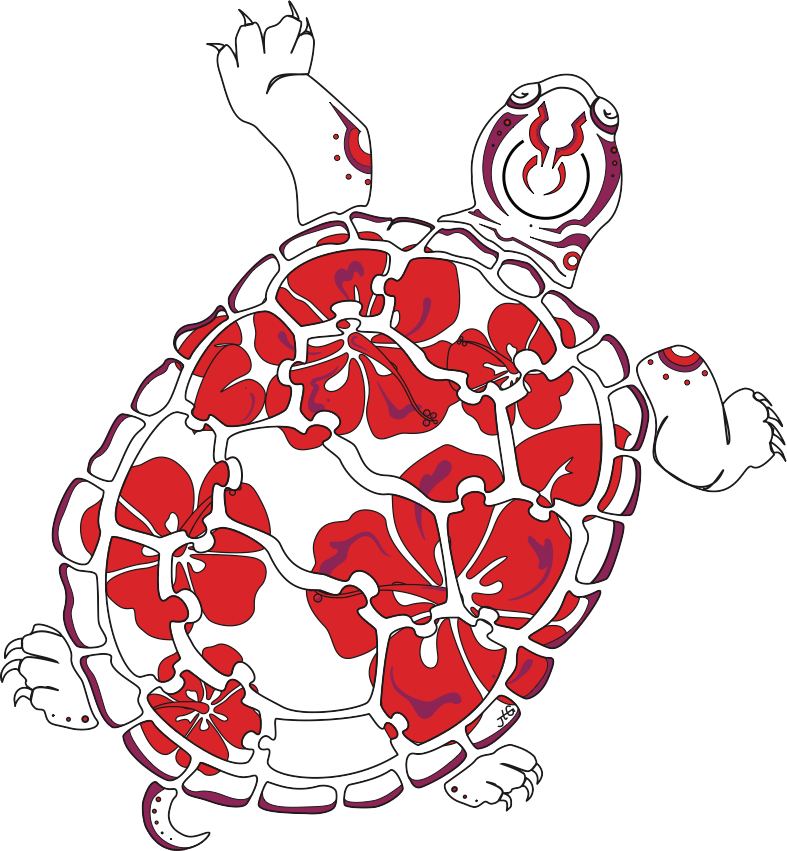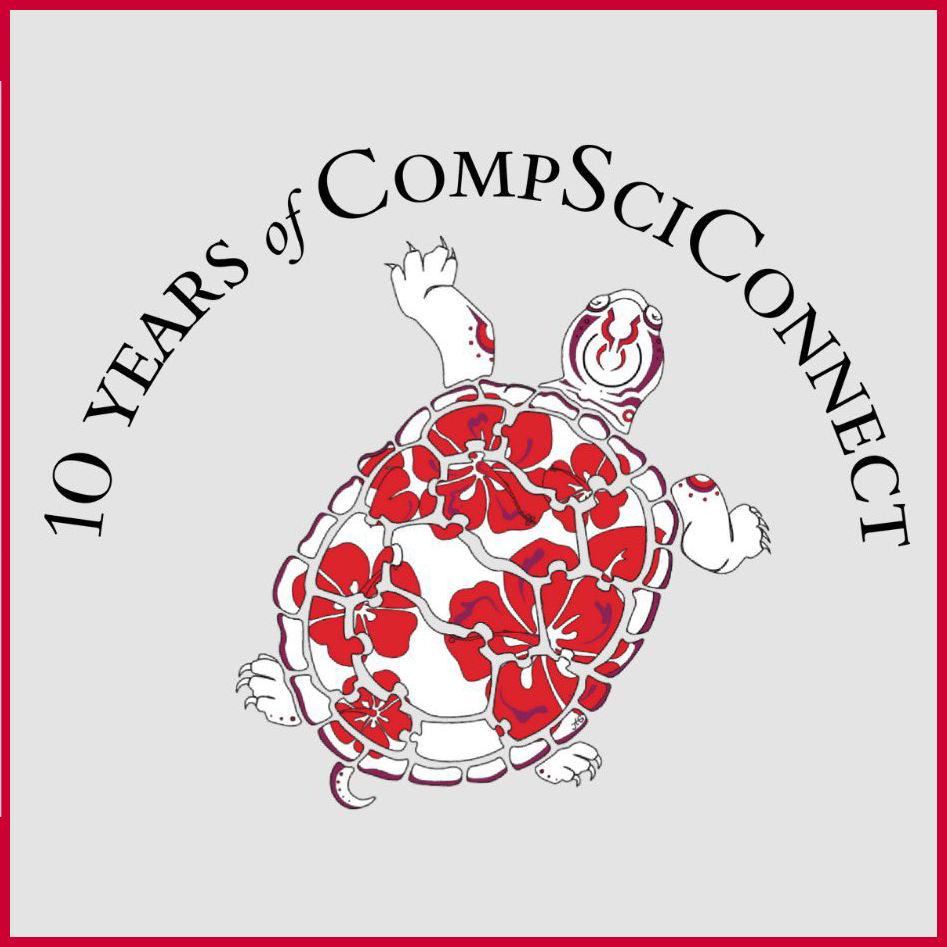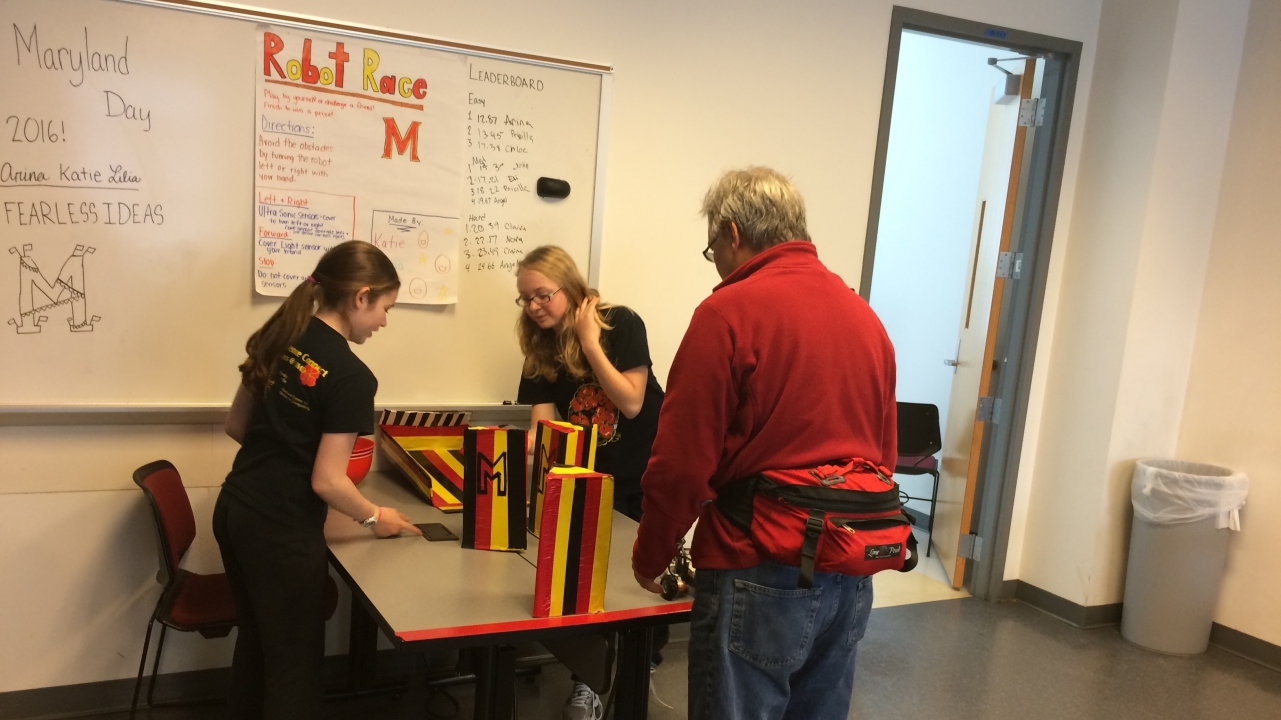CompSciConnect: A Computing Camp for Middle School Girls
CompSciConnect: A Computing Camp for Middle School Students
The Maryland Center for Women in Computing (MCWiC) at the University of Maryland, College Park is pleased to offer Computer Science Connect (CompSciConnect), a summer day camp to encourage middle school students to explore fields of computer science.

About
CompSciConnect is designed as a three-year program in which students advance their knowledge and explore new fields of computing each year. Content builds upon knowledge from the previous years. Most students begin in the Yellow group, progress to the Red group, and finally end in the Terp Group.
During the two-week summer program, students learn to develop in Scratch, create dynamic web pages, and build basic virtual reality games. Students also learn number theory, cybersecurity, logic puzzles, as well as computer use and safety.
Throughout the academic year, students are invited to continue the program during monthly meetings. Interactive presentations are created for family, friends, donors, and the community at the annual CompSciConnect Showcase at the end of the fall semester and at Maryland Day at the end of the spring semester.
CompSciConnect's name invokes the new and exciting connections that students will make to Computer Science, with one another, and to a variety of fields in which computing is a significant part.
CompSciConnect first launched in 2012 with 14 participants. Today over 120 students participate in CompSciConnect each year.
MCWiC Teaching Ambassadors lead camp sessions and provide intelligent, positive, and energetic role models for all participants. This project is supported in part by the Armed Forces Communications and Electronics Association (AFCEA)-Bethesda Chapter. To see CompSciConnect in action, we encourage you to come see students’ projects each April during Maryland Day.
Typical Schedule
9:00-12:00pm Classroom Instruction*
12:15-1:15pm Lunch
1:30-3:30pm Classroom Instruction
*During each session, students will go on two field trips, and at least one lab visit, in addition, two speakers will come during class time. These will periodically take the place of morning instruction.
Students typically start immediately after finishing 5th or 6th grade in the Yellow Group. Rising 7th and 8th graders are typically accepted in the Red or Terp group if they have sufficient experience. Each summer students develop more advanced skills and meet once a month through the school year to maintain those skills.
Through the three years, we emphasize how different fields of computing connect to other areas of study and to make the world a better place.
Our decision to gear CompSciConnect to those completing 6th grade was based on the literature that shows that girls in elementary school are as interested in STEM as the boys, but through middle school and high school girls often lose interest.
The goal of this camp is to remove the hurdles and dispel the misconceptions that turn students away from computing by exposing them to a variety of areas within computer science, participating in fun activities around these areas, and showing them the connections to how computing connects to almost every part of our world. By allowing middle school students to see the wide variety of areas within computer science, we hope to keep our camp participants interested in computing by creating a three-year commitment.
Why?
- By 2020, there will be 1.4 million jobs in computing outpacing the number of graduates in the field.
- Computing touches every field from biology to education to business.
- Getting an early start on computing skills will help you in the future.
- Computing can change our world for the better.
- It's fun!
Each group is composed of 15-25 students who are around the same age and have similar backgrounds within computing. Every group has a team-oriented project as well as individual activities. For two weeks, UMD students teach the various curriculum to students in a safe, supportive environment where computing creativity can blossom supported by the proper tools and by people who believe that hands-on exploration leads to learning and more interest.
Days are supplemented with on-campus and off-campus field trips. Past trips off-campus trips include NSA's Crypto Museum, the International Spy Museum, Newseum, Smithsonian American History- SPARK Lab, Kid Museum, NASA, and the College Park Airport Museum. Past on-campus trips include UMD Wind Tunnel, UMD Robotics lab, HCIL lab, and the nano-imaging lab.
Students will learn
- Computational (and algorithmic) thinking is natural and can be learned in a fun and exciting ways.
- Computing is ubiquitous in our society.
- Computing has a wide variety of fields of study.
- People in computing come from a wide variety of populations and have a wide variety of interests.
- There are many computer tools and languages available.
- Camaraderie is important – It is great to work with others who share their interests.
Through...
- Hands-on Activities
- Interactive teaching methods
- Project oriented teamwork
- Field trips
- Visits with Computer Scientists from around the world in person and electronically
Programming projects include:
- Yellow- drag & drop programming with Scratch
- Red - creating dynamic web pages with an introduction to CSS, HTML & JavaScript
- Terp- introduction to object-oriented programming & creating virtual reality games using Unity
In addition to programming, the following topics are taught in increasing levels of depth over the three years:
- Applications of computing
- Number systems: binary, octal and hexadecimal - conversions and arithmetic
- Cybersafety & Cybersecurity
- Cryptology
- Computing concepts: Internet protocols, algorithms, etc.
- There is a charge of $400 for the two weeks of the summer camp (no additional charge for the meetings during the school year.)
- Applications will go live in early January of 2023
- Financial Assistance is available for those with displayed needs by completing our Scholarship Application.
- Lunch is not provided, but snacks are provided each day.
- Camp begins each day at 9:00 am and ends at 3:30 pm.
- Before and After Care is available for an additional fee ($100). Before care begins at 8:00 am and ends at 5:00 pm.
- Although the program is designed to be attractive and accessible to female students, male students from underserved populations are encouraged to apply.
- Parents and students are responsible for arranging transportation to and from the University of Maryland and for providing a bag lunch each day.
- Weekend meetings occur one Sunday afternoon each month.
Dates & Links
Application information:
I4C Summer Academy applications are closed!
Most recent grade report (transcript or report card): https://go.umd.edu/sum24Grades
Summer 2024 CompSciConnect Dates:
Target Participant: Rising 6th - 8th Graders
Session 1: June 17 - June 28 (CSC Yellow & Red only)
Session 2: July 8 - July 19 (CSC Red & Terp only)
Session 3: July 22 - August 2 (CSC Yellow & Terp only)
10th Anniversary Showcase
CSC Videos
CompSciConnect was featured on the Big Ten Network's BigLive Series. Watch the YouTube video below.
FAQs
You can find the required forms in the Register section. (Applications will go live in early January 2024.) Once accepted to the program there will be additional forms to complete - e.g. medical history, etc. These forms are under registration.
A complete application package should have the following parts:
- Application Form
- Teacher Recommendation Form
- Report Card

